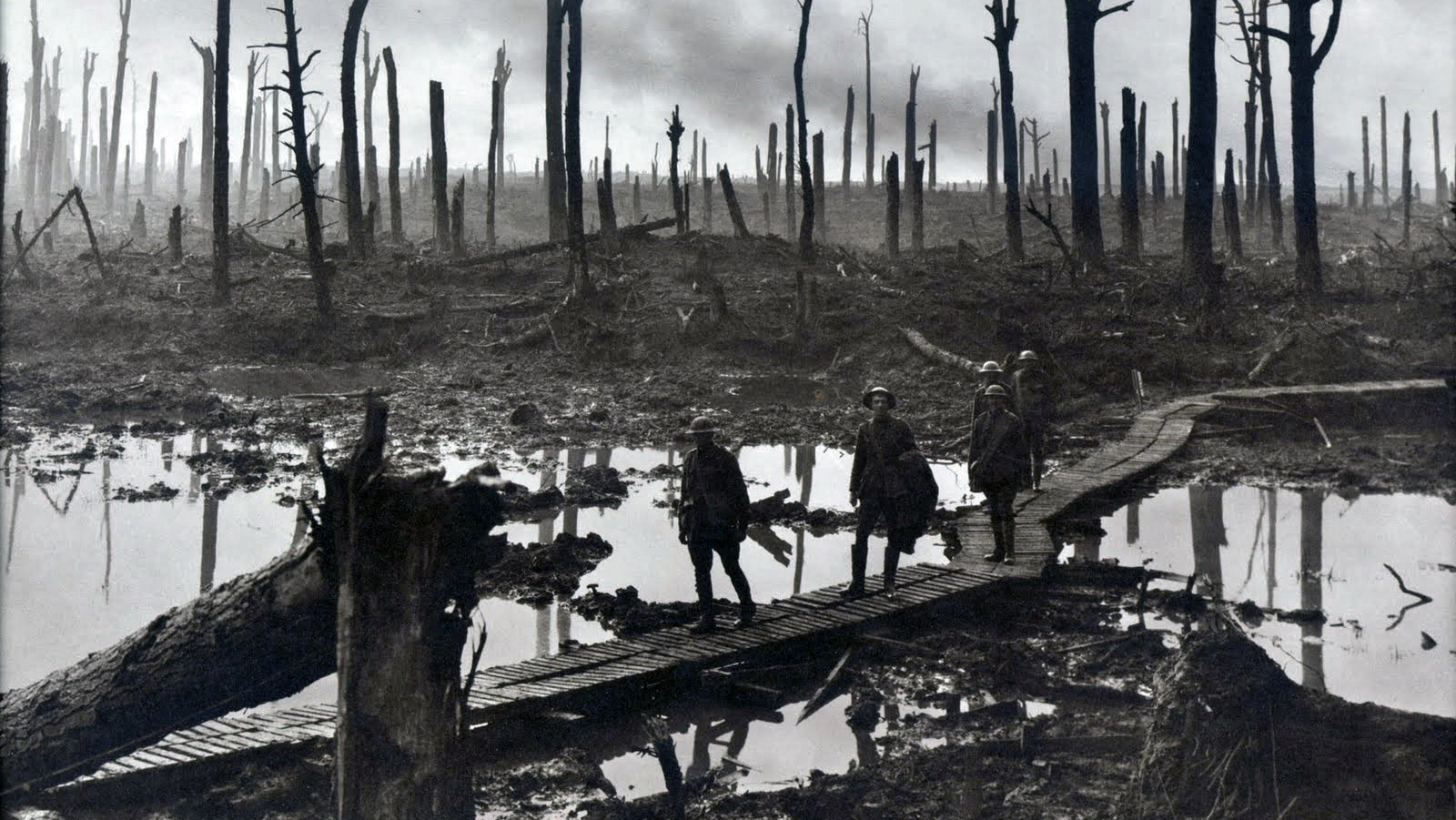Award-winning New Zealand film director Peter Jackson has produced a new documentary, They Shall Not Grow Old, coinciding with the 100 year anniversary of the end of World War I. Using groundbreaking techniques, he and his team have brought the old war footage back to life. It’s history with skin on it. Colour and sounds added, the movement normalised and the soldiers brought to us in 3D.
Critics agree the film succeeds in making the content relatable. It’s harder for modern audiences to dismiss than the jumpy black and white footage that seems so removed from our time and place. This is important. Here we are. One hundred years on from “the war to end all wars”. Except it didn’t. And it fades from our collective memory. Lest we forget.
People often lament that if we don’t learn from history we are doomed to repeat it.
What can we learn from World War I?
Well, there was no real victory—instead, an armistice that extended indefinitely. The sanctions imposed on those who “lost” the war in fact planted the seeds for its continuation, in World War II. The conditions that led to the “Great War” were never addressed or stamped out—only fermented and returned.
Nationalism was rampant. Wilfred Owen, a young poet who died in the conflict, describes the horrors he witnessed and then penned these words:
“My friend, you would not tell with such high zest
To children ardent for some desperate glory,
The old Lie: Dulce et decorum est
Pro patria mori.*”
Sweet and fitting to die for your country?
In today’s zeitgeist we see the same triumphalism and nationalism that once drove parents to send their sons to battle or shame them if they didn’t. Only now the battle lines are drawn between generations and philosophies within, not just cultures and nations without. It’s complicated.
And what of us, the Church? Unfortunately, we have the same tendencies creeping in. We will fight to the death for our ideology. We paint the other camp with broad brush strokes and believe them to be papal or Babylon. We are sure that if they get their way, they will destroy the Church.
The world is splitting down the middle as left and right fight to the death and the Church is following it.
We knew it would happen. We even have prophetic understanding. This polarising push echoes the prophecy that there will only be two choices in the end: those who worship the beast and its image and those who worship Jesus, the servant King.
It’s easy then to superimpose our prophetic understanding onto our current polarisation. Those I agree with are worshipping in spirit and truth. Those I don’t agree with are wrong.
Yet these designations, these groups, do not accurately represent the polarisation found in the Bible. There it is much more personal.
In the parable of the virgins, personal preparedness and the presence of the Holy Spirit are of key value. The sheep and the goats designation questions how we personally treat people. Even the story of the lost son asks the two brothers, Will you be open to the work of salvation?, Will you join the party? or Will you refuse through jealousy, self-value, your sense of justice?
Paul says of the church, “There is neither Jew nor Gentile, neither slave nor free, nor is there male and female, for you are all one in Christ Jesus” (Galatians 3:28). Paul takes polar opposites and brings them together in Christ. Yet we ignore Paul’s plan, trumpeting the “rightness” of our cause. We become so busy looking for the enemy we have lost sight of our King; the One who calls us to take up our crosses and lay down our lives and follow Him.
Instead of hunting for differences, we must be diligent students of the Bible to contextualise the Adventist message for our time and place, understanding what it looks like to share Christ in the cultures we find around us.






